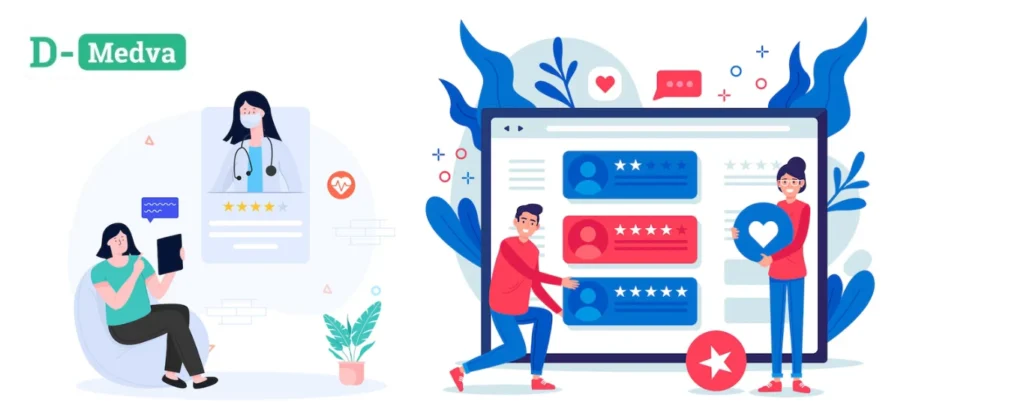Converting Website Visitors into Patients Lead Generation Tips for Hospitals
Introduction Hospitals and healthcare institutions are increasingly leveraging digital platforms to connect with potential patients. A well optimized website can serve as a powerful tool for attracting visitors and converting them into loyal patients. However, merely driving traffic to a website is not enough. Hospitals need effective Lead Generation strategies to encourage engagement and build long term relationships with prospective patients. By understanding visitor behavior and implementing targeted approaches, healthcare providers can improve patient acquisition and retention. The healthcare industry is highly competitive with many hospitals offering similar services. To stand out, institutions must provide an exceptional online experience that instills trust and encourages action. This involves offering clear information, seamless navigation and easy ways for visitors to engage with the hospital. Implementing effective digital marketing strategies ensures that hospitals capture and convert potential patients efficiently. A strong Lead Generation strategy not only helps hospitals increase their patient base but also enhances patient satisfaction. When prospective patients find relevant and helpful information on a hospital’s website, they are more likely to seek care from that institution. By focusing on user experience, transparency and communication, hospitals can create a digital presence that fosters trust and encourages visitors to become loyal patients. Optimizing Website Design for Better Engagement A hospital’s website serves as the first point of contact for many potential patients. Ensuring that the site is user friendly, informative and easy to navigate is crucial for effective Lead Generation. A well structured website with clear call to action buttons, streamlined appointment scheduling and mobile responsiveness increases the likelihood of conversion. Visitors should find it effortless to locate essential information such as available services, physician profiles and contact details. Providing engaging and informative content is another key aspect of website optimization. Hospitals should offer valuable resources such as blog articles, patient testimonials and frequently asked questions. This helps address common concerns and reassures visitors about the quality of care they can expect. Including educational materials on preventive healthcare and treatment options can position the hospital as a trusted authority, encouraging potential patients to take action. Website speed and performance also play a significant role in engagement. Studies have shown that users tend to abandon websites that take too long to load. Hospitals must ensure their website is optimized for speed and accessibility. Implementing fast loading pages, intuitive navigation and secure online forms can significantly improve user experience. A well optimized website keeps visitors engaged and increases the chances of them booking an appointment. Using SEO and Content Marketing for Lead Generation Search engine optimization plays a vital role in attracting potential patients to a hospital’s website. By optimizing content for relevant keywords, hospitals can improve their search rankings and visibility. When individuals search for healthcare services online, they are more likely to visit a website that appears at the top of search results. Including strategic keywords in website pages, blog articles and service descriptions helps increase organic traffic. Infographics simplify complex medical information, making it easier for visitors to understand. By diversifying content formats, hospitals can appeal to a broader audience and encourage more engagement. Leveraging Social Media to Connect with Potential Patients Social media platforms provide hospitals with opportunities to reach and engage potential patients. A strong social media presence enables healthcare institutions to share valuable content, interact with followers and showcase patient success stories. Platforms such as Facebook, Instagram and LinkedIn can serve as extensions of a hospital’s website, directing visitors to key resources and services. Consistent and informative posting is crucial for social media success. Hospitals should share health tips, patient testimonials and updates on new services or treatments. Engaging with followers through comments and messages fosters trust and establishes a connection with the audience. Responding promptly to inquiries can further encourage prospective patients to seek care from the hospital. Social media advertising is another effective strategy for lead generation. Paid promotions allow hospitals to target specific demographics based on location, age and interests. Running targeted campaigns for specific healthcare services can drive potential patients to the hospital’s website. Well crafted advertisements with compelling visuals and clear calls to action enhance engagement and increase conversion rates. Implementing Online Appointment Booking Systems Simplifying the appointment scheduling process is an essential component of lead generation. Many potential patients prefer the convenience of booking appointments online rather than making phone calls. Hospitals that offer seamless online scheduling options enhance user experience and encourage more visitors to become patients. An efficient appointment booking system should be user friendly and accessible across multiple devices. The process should require minimal steps and provide immediate confirmation. Hospitals should ensure that visitors can schedule appointments directly from the homepage or service pages without unnecessary complications. Clear instructions and automated reminders can further improve the scheduling experience. Integrating live chat or virtual assistant features can also enhance appointment booking. Chatbots powered by artificial intelligence can provide instant responses to frequently asked questions, guiding visitors through the scheduling process. Live chat support allows prospective patients to get real time assistance, making it easier for them to take the next step in their healthcare journey. Encouraging Patient Reviews and Testimonials Positive patient reviews and testimonials play a significant role in building trust and credibility. Many individuals rely on online reviews when choosing a healthcare provider. Encouraging satisfied patients to share their experiences can influence prospective patients’ decisions. Featuring testimonials prominently on a hospital’s website and social media pages enhances transparency and credibility. Demonstrating a commitment to patient satisfaction helps build trust and reassures prospective patients that their needs will be met. A well managed reputation fosters confidence and encourages more website visitors to become patients. Converting website visitors into patients requires a comprehensive lead generation strategy that focuses on user experience, engagement and trust building. A well optimized website with clear navigation and valuable content enhances visitor interaction. Implementing search engine optimization techniques ensures greater visibility, attracting more potential patients. Social media serves as an effective platform for connecting with prospective patients and sharing valuable healthcare information. Online appointment










